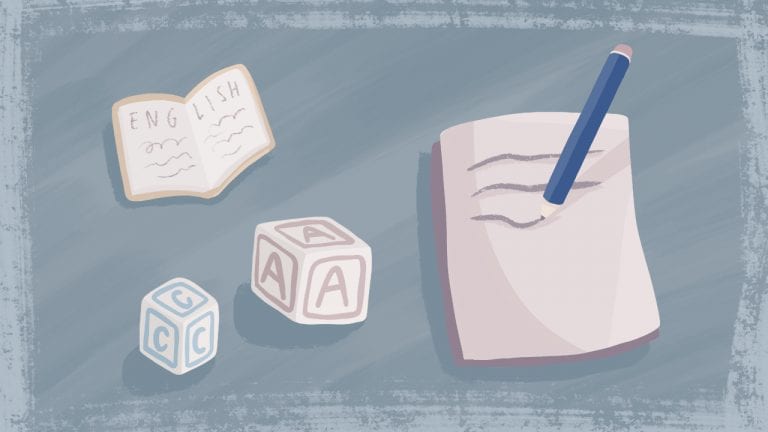
15 Common English Idiomatic Expressions and How to Use Them

We all know that composing really long essays can be a real hassle, not just because it takes forever to finish, but also because you will eventually run out of fresh and interesting words. And without a wide vocabulary, you will find it even harder to spice up your words to keep the readers interested in your essay. It is a good thing that you can use other substitutes to make your essay more interesting such as having a really good topic and structure, figures of speech, and idiomatic expressions. And while the other two mentioned earlier may take some time to master and get the hang of, idioms are considerably easy to use as you just need to substitute them for regular expressions.
What are idiomatic expressions?
Idioms or idiomatic expressions are phrases which usually have meanings completely unrelated to the definition of the words, or whose usage is unique for a community, place, or organization. Their definitions may often sound really far off from the words used to make up the phrase or that they often make no sense at all unless you know the definitions of these phrases.
Why you should use them
Idiomatic expressions are often a fun way to substitute regular phrases with really peculiar and interesting ones to make your essays or stories more fun and interesting. Not to mention that it shows proficiency in the English language and makes your pieces seem more sophisticated and intellectual.
Idiomatic expressions and their definitions
Whether you want to add more flavor and spice to your essays or you just want to impress your English teacher with your vast knowledge of idiomatic expressions, we have you covered with 15 idiomatic expressions and how to use them.
1. A blessing in disguise
The phrase “a blessing in disguise” is often used to signify a good outcome that came off bad at first. It could be an event, object, person, or individual who brought an unexpectedly good outcome out of a bad situation. For instance, when a storm unexpectedly brings a good harvest to the farmers, it is a blessing in disguise.
Example: The drought was a blessing in disguise for we would have never discovered the cave filled with treasure if the water levels were still high.

2. Beat around the bush
Beating around the bush is often used in the English language to signify that one is refraining from saying something directly due to the topic being uncomfortable or confidential. When someone tries to say something in small details related to the main topic but never discusses the main topic, then that person is beating around the bush.
Example: “Stop beating around the bush and tell me what happened to my family?”
3. Bite the bullet
This idiomatic expression is one of those cooler lines usually used in action movies. Biting the bullet usually means to do something which is inevitable or unavoidable. When the main character of an action film needs to confront the final boss, he needs to bite the bullet because the film will not end otherwise.
Example: The test I forgot to study is already starting, guess it’s better to bite the bullet and get it over with.
4. Cutting corners
This idiomatic expression is one of those cooler lines usually used in action movies. Biting the bullet usually means to do something which is inevitable or unavoidable. When the main character of an action film needs to confront the final boss, he needs to bite the bullet because the film will not end otherwise.
Example: The test I forgot to study is already starting, guess it’s better to bite the bullet and get it over with.
5. Go back to the drawing board
The idiom “go back to the drawing board” is not necessarily tied with drawing or arts; it can also be used to signify planning something back from the very beginning. This idiomatic expression is often related to starting over again once the previous plan fails. You can also substitute another idiom which has a definition close to this one which is “back to square one” which means to go back to the beginning and resetting any progress you made in your previous attempt.
Example: I can’t believe I need to go back to the drawing board after my prototype malfunctioned.
6. Hit the sack
An idiom you can use if you want to increase the word count in your essay is “hit the sack” which literally means to sleep. Hitting the sack is often used in an informal manner and is not advisable when making academic papers though.
Example: After a long day of work, I head home, eat dinner and hit the sack.
7. The best of both worlds
An idiomatic expression you can use as an adjective to describe someone or something ideal is “the best of both worlds”. It is often used to describe something which is extremely efficient in doing two things, or in the case of a person, someone who excels at two things completely unrelated to each other.
Example: Rebecca was both athletic and smart; she was the best of both worlds.
8. Get bent out of shape
When you use the idiomatic expression bent out of shape to describe someone, you essentially mean that he/she is upset, and to get bent out of shape means to get upset over something. You can imagine someone as a pole and when something upsetting keeps on hammering at them, they will eventually get bent out of shape, or in the case of the real world: get upset.
Example: Why do you have to get bent out of shape for every little thing I do?
9. Add insult to injury
A really classy sounding idiom is “add insult to injury” which can be used to define making a situation worse. This often occurs when someone intentionally makes fun of the failure of someone else or when a person unintentionally says something that could make a situation even worse.
Example: Toby was already depressed about losing his leg, but Johannes had to add insult to injury by sarcastically saying “break a leg Toby”.

10. Break the ice
We hear icebreakers and pick-up lines all the time, but the idiomatic expression “break the ice” is rarely ever used. This idiomatic expression is used when you do something that makes people more comfortable. You could start a joke to make the cold gazes and reactions of the people there melt away, hence breaking the ice.
Example: As soon as I entered the conference room, I knew I had to immediately break the ice.
11. Comparing apples to oranges
Comparing apple to oranges is an idiom often used to describe the comparison between two objects which cannot be compared. The line drawn between things that can be compared and things that cannot be compared is quite thin and the exact border depends on the person and the argument he/she present. But nonetheless, you can always use this idiom to make your essays sound more interesting.
Example: Arguing whether it is better to have a cat or a dog as a pet is like comparing apple to oranges.
12. Go on a wild goose chase
The idiomatic expression “going on a wild goose chase” does not necessarily mean that the subjects of the sentence are in fact chasing geese (although there is always a chance that they are), instead it means to do something pointless. Looking for an object that doesn’t exist, trying to win rock-paper-scissors with your reflection, or any other activity without any sense is considered a wild goose chase.
Example: Instead of going on a wild goose chase, why don’t we just call John to know where he is?
13. On thin ice
The idiomatic expression “on thin ice” is often used to define a person who is nearing trouble. One small mishap could spell the end for that person’s freedom because he might be grounded by his/her parents. Or in a fantasy setting, that person could end up becoming feed for the monsters once he/she is found out.
Example: Bernadette was already walking on thin ice due to her previous mischiefs.
14. Rain on my parade
This idiomatic expression has made it into a lot of song over the years and is often used to describe spoiling an event. Rain on my parade is often used in first person and is a verb done by another party.
Example: Even after all the preparations I did, you just had to rain on my parade Anthony.
15. Taken with a grain of salt
The last idiom in the list is “taken with a grain of salt” which means that it was not taken seriously. This could signify sarcasm or that the other party just doesn’t take the subject seriously. This idiomatic expression is one of those rarely used ones and often sounds mature and professional.
Example: even though he warned the travelers of the impending danger they will face, his words were taken with a grain of salt by the travellers.
Now that you have learned a lot of idiomatic expressions to impress your class and English teacher, you might want to study on other aspects that can make your essays and stories more interesting. In which, case we have just the solution to help you get better at English. FamilyTutor is Singapore’s best home tuition agency with thousands of highly skilled and proficient tutors who are capable of teaching pre-school up to university level students. We also have home tutors who are expert in English to make you much more skilled in using your idiomatic expressions and other languages as well from all around Asia. All it takes is a few clicks and you will be set to learn from one of Singapore’s best home tutors.
Need to find out more about English Tuition? Visit our English Tuition blog today!

Carelle
Carelle is a teacher who has been through the ups and downs of the teacher and learner life. She wishes for every learner to gain educational satisfaction that will help embody the people they want to be in the future.
Tell Carelle Below What You Think About Her Post!

About FamilyTutor!
FamilyTutor is an established home tuition agency in Singapore! We match suitable home tutors for our clients not just to improve the students' academic grades, but also to build a strong rapport and meaningful relationship with the students and even the their whole family. FamilyTutor put every student in good hands!
If you need an excellent home tutor, feel free to call/WhatsApp us at +65 8777-2168! Our matching service is free!
Related Posts!
Follow Us On Facebook!
Education Levels
National Exams
Math & Science Subjects
Language Subjects
Japanese Tuition
Korean Tuition
German Tuition
Humanities Subjects
Social Studies
Chinese Literature Tuition
About Us
FamilyTutor is an established and the people’s favourite home tuition agency in Singapore! We match a suitable tutor for you not just to improve the student’s grade, but also to build a good rapport and meaningful relationship with the student and even with the student’s whole family! With FamilyTutor, every Singaporean son & daughter is in good hands.
Contact Us
- 8777 2168
- 8777 2168
- Mon-Sun 9am-10pm (Including PH)
- contactus@familytutor.sg
- 17 Petir Road Singapore 678278









